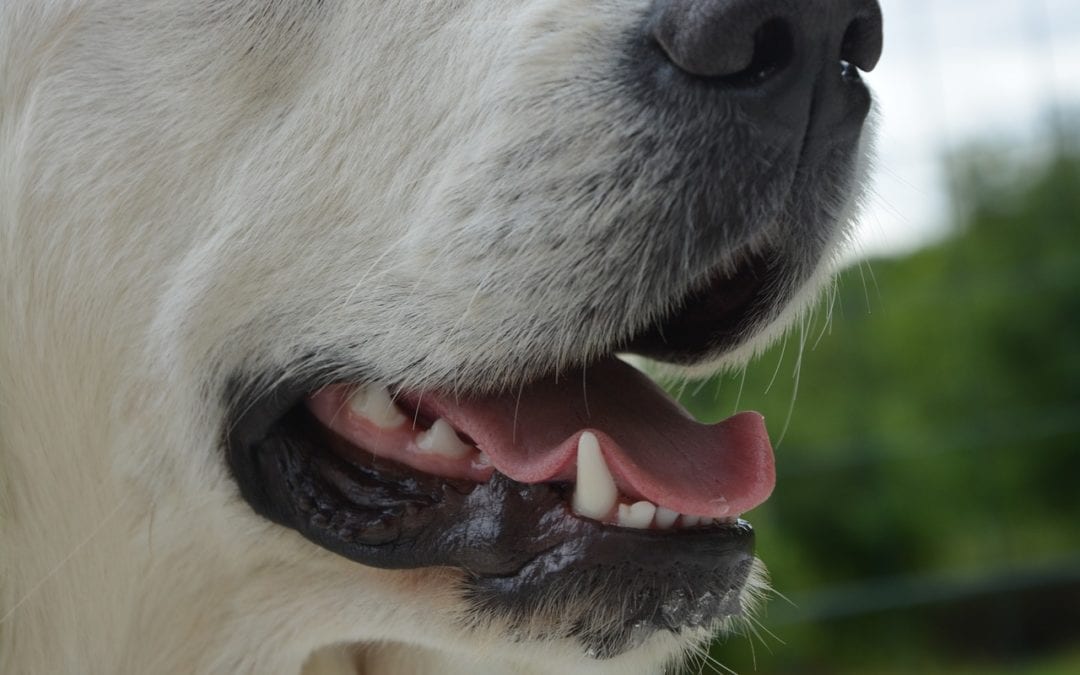Does your dog or cat have bad breath? Do you assume it’s just normal ‘dog breath’? The bad breath you notice is likely due to bacteria in the mouth. Most dogs and cats have evidence of dental disease by three years of age. Dental disease is the most common ailment reported by veterinarians and it is completely preventable. Periodontal disease starts when bacteria in the mouth sticks to tooth surfaces and becomes plaque. Minerals in pet saliva hardens the plaque into calculus, which hardens onto the tooth. You may be able to see calculus on your pet’s teeth, but the biggest concern is what happens below your animal’s gum line.
Bacteria sitting below the gum line secretes toxins that damage the gum tissue if left untreated. The body’s immune system responds to the bacterial toxins by sending inflammatory cells to fight infection; however, these inflammatory cells not only destroy bacteria, they also harm the tissues around the tooth. As a result, the gum tissue recedes and bone loss often follows. Once bone loss occurs it is permanent and teeth can loosen. Loose teeth can fracture, leaving an open route of infection to the body and a painful mouth. By definition, periodontal disease includes gingivitis (red gums) and periodontitis (bone and soft tissue loss around the tooth). Studies of periodontal disease in pets have shown increased microscopic changes in the heart, kidney, and liver.
An annual oral health assessment will be performed during dental cleanings at Liberty Pet Hospital. Dental exams and cleanings may be recommended annually. When a pet is under anesthesia it allows us to remove calculus buildup, check for gum recession and evaluate all surfaces of your pets’ teeth. It’s also important to provide oral hygiene care for young pets at home. Once calculus is noted on your pet’s teeth, only a professional dental cleaning and polish under anesthesia can safely remove it.
Fortunately, there are toothbrush kits, water additives, oral rinses and prescription dental foods we can offer to help prevent periodontal disease. At your pet’s next exam, we can decide together what measures are necessary for keeping your pet’s mouth happy and healthy.
Thank you for reading and please email with other health questions or topics you’d like to read about in my blog to info@libertypethospital.com
Dr. Miller

